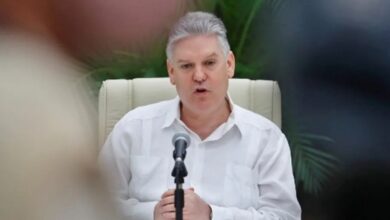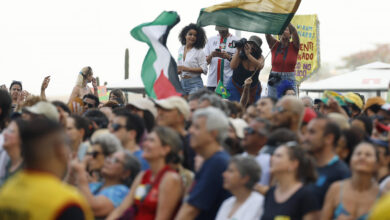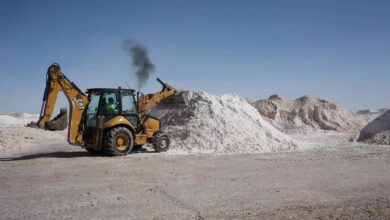Fujimorismo, the biggest loser in Peruvian politics
Last Sunday, January 26, Peruvians defined the members of their new Congress after the political crisis led to extraordinary parliamentary elections.

Keiko Fujimori / Photo: peru.com
LatinAmerican Post | Juliana Suárez
Listen to this article
Leer en español: Fujimorismo, el gran perdedor en la política peruana
Normally, parliamentary elections are held the same year as the presidential ones, which means that both the Parliament and the president come into operation and end at the same time.
On this occasion, Peru voted in extraordinary elections, so that President Martín Vizcarra had two different Congresses during his term. The conformation of this Parliament will only go until 2021 and will be the shortest period that a Parliament has had in Peru. This, since it only seeks to complete the period that the previous Congress could not finish, but this body will continue to be governed under the parameters that have always been done; which is to start at the same time as the president.
After having a Congress with a large Fujimorist majority, as opposed to the Government, the elections gave, as the biggest loser, that same movement that during years had been latent in the branches of the public power. The 'Fujimoristas', followers of former President Alberto Fujimori, serving a 25-year prison sentence for human rights violations during his tenure, were the biggest losers.
Of the 130 parliamentary seats that were in question, the 'fujimorismo', called the Popular Force Party (Fuerza Popular), went from having 73 in the 2016 elections to just 12.
Read also: Political crisis in Peru: Vizcarra dissolved the congress
Now, despite the failure of the Popular Force, which means a triumph per se for Vizcarra because it will be easier to process the laws, for the first time in years the Parliament does not have a definitive majority but, on the contrary, is highly fragmented.
The final results showed the presence of at least 20 parties or movements with representation in parliament, Popular Action (Acción Popular) being the party with the most representation, and it is only 12%. This party, with great experience in the country and the one that has been in the presidency for the longest time, has evolved through the years between the center and the center-right. At the moment, due to its position as a right-wing together with other related movements, it is expected that this is the tendency of the Parliament that has just been constituted.
After the results, the Peruvian president announced that he will meet with the parties of the new Congress in order to set the agenda for the coming months.
La construcción de una democracia sólida y legítima requiere de una ciudadanía activa. Hoy, los peruanos y peruanas, tenemos una nueva oportunidad para decidir. Hagámoslo con responsabilidad, pensando en el país.
— Martín Vizcarra (@MartinVizcarraC) January 26, 2020
The dissolution of the Congress
Martín Vizcarra had announced on September 30 what many Peruvians had been waiting for months: the dissolution of Congress. This he did following the provisions of article 134 of the Constitution and called for new elections. “The dissolution of the Congress has the function of achieving a new parliamentary election, and that it is finally the people who are right, if the majority that I have dissolved today and have opposed the Executive if they agree with the Executive by electing a new majority, ”said the president.
This decision was taken after months of the Peruvian people taking to the streets to demand the resignation of the entire Congress, which at the time was a Fujimori majority. But the tensions of the Executive and Legislative power came from years ago: a rivalry that led former President Pedro Pablo Kuczynski to resign, to what happened to his vice president, the current president Vizcarra.
In the two years that Vizcarra had been in the presidency at the time of the dissolution of the Congress, he accused the opposition, majority, of obstructionism, since many of the reforms he tried to pass through Congress were quickly knocked down.
In the dissolution speech of the Congress, President Martín Vizcarra affirmed that a true representation of the Peruvian people in Parliament was needed, which could only be achieved with new elections. In them, he said, it could be that Congress remained the same as before, and so at least it would be known that it was the will of Peruvians.
Anti-corruption fight
In recent years, Peru has been intensely marked by high levels of corruption, especially linked to the Brazilian Lava Jato and Odebrecht scandal. On this issue, several political figures in the country were splattered, such as Keiko Fujimori, daughter of the former president and leader of the Popular Force party, Alan García, the former president who committed suicide after knowing the preventive prison order, and Vizcarra's predecessor, Kuczynski.
Read also: The questioned candidacies for the presidency of Bolivia
For the same reason, the years in the presidency have not been an easy path for Vizcarra, who has the commitment with the people to fight with the corruption that is found in opposing parties of the country's politics.
Just days after the elections, Fujimori leader Keiko Fujimori re-entered prison as a preventive measure while investigating four cases. The policy, which is investigated for corruption related to Odebrecht, had been released from jail two months ago but the judge said pretrial detention is an "appropriate, adequate, necessary and proportionally strict" measure.





